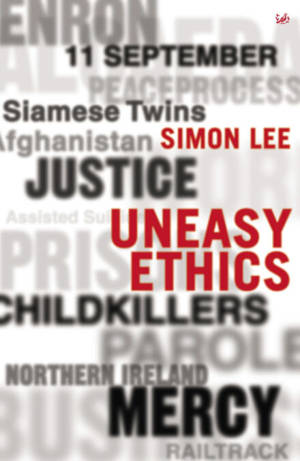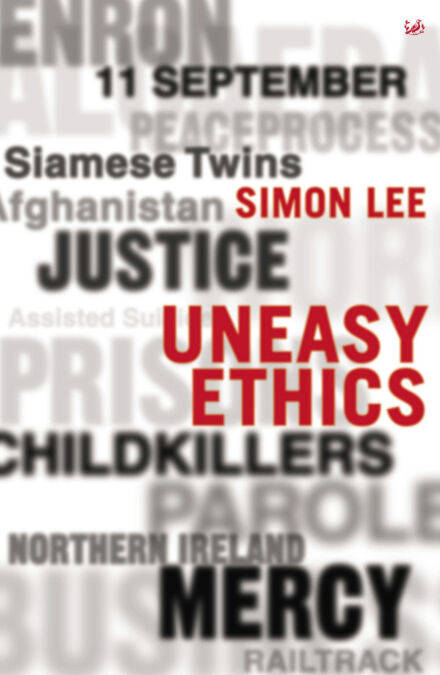
Bedankt voor het vertrouwen het afgelopen jaar! Om jou te bedanken bieden we GRATIS verzending (in België) aan op alles gedurende de hele maand januari.
- Afhalen na 1 uur in een winkel met voorraad
- In januari gratis thuislevering in België
- Ruim aanbod met 7 miljoen producten
Bedankt voor het vertrouwen het afgelopen jaar! Om jou te bedanken bieden we GRATIS verzending (in België) aan op alles gedurende de hele maand januari.
- Afhalen na 1 uur in een winkel met voorraad
- In januari gratis thuislevering in België
- Ruim aanbod met 7 miljoen producten
Zoeken
Omschrijving
Professor Simon Lee explores five acute moral dilemmas of the new millennium, each of which has caused un-ease among liberals and conservatives alike. His variation on the old adage that hard cases make bad law is to say that hard cases make for un-easy ethics. If you do not feel uneasy about your answer then you have not understood the questions posed by a series of dilemmas. First, he unravels the moral thinking behind opposing views of the case of the Siamese twins, which attracted worldwide attention in the summer and autumn of 2000, showing how the Archbishop of Westminster argued on ethical principles while the judges responded by using hypothetical 'hard cases'. Second, he explores sharply conflicting reactions to the release in the summer of 2001 of the 'child child killers' of the little boy James Bulger, asking how he find space for atonement. Third, he traces the moral dilemmas within the stop-start Northern Irish peace process which has seen so many twists and turns in the past couple of years. Fourth, he examines the ethics of business and government behaviour in the year of collapses from rural industry to Railtrack. Finally, he offers one of the first considered ethical analyses of contrasting responses to the terror attacks in the USA on 11 September 2001. Ranging across philosophy, law and theology, this analysis of hard cases and un-easy ethics culminates in a novel interpretation of politics' elusive Third Way.
Specificaties
Betrokkenen
- Auteur(s):
- Uitgeverij:
Inhoud
- Taal:
- Engels
Eigenschappen
- Productcode (EAN):
- 9781448129713
- Verschijningsdatum:
- 30/12/2011
- Uitvoering:
- E-book
- Beveiligd met:
- Adobe DRM
- Formaat:
- ePub

Alleen bij Standaard Boekhandel
+ 9 punten op je klantenkaart van Standaard Boekhandel
Beoordelingen
We publiceren alleen reviews die voldoen aan de voorwaarden voor reviews. Bekijk onze voorwaarden voor reviews.









